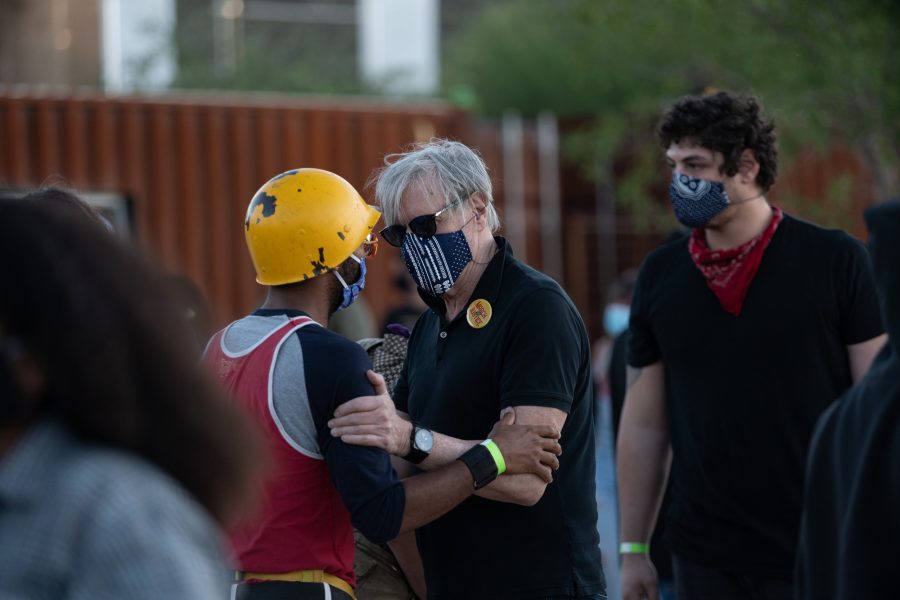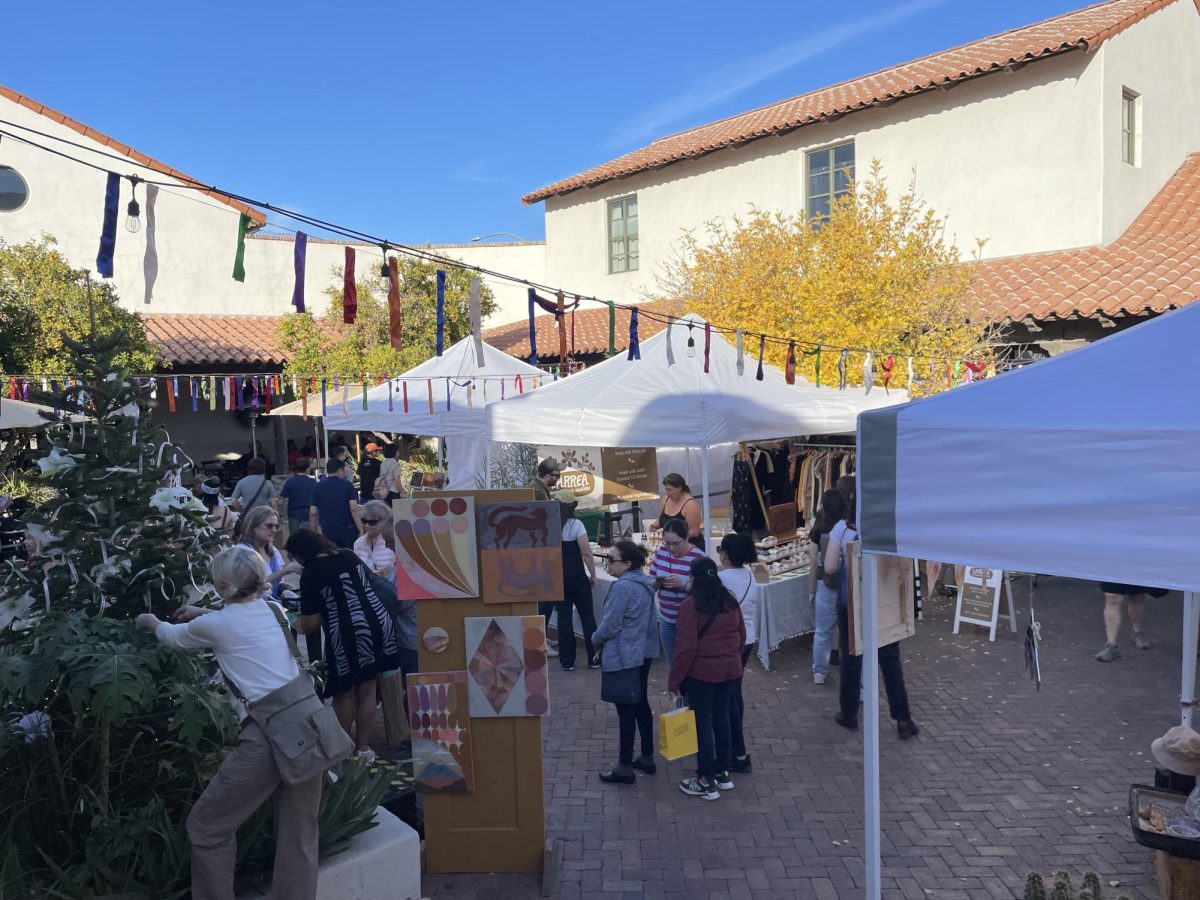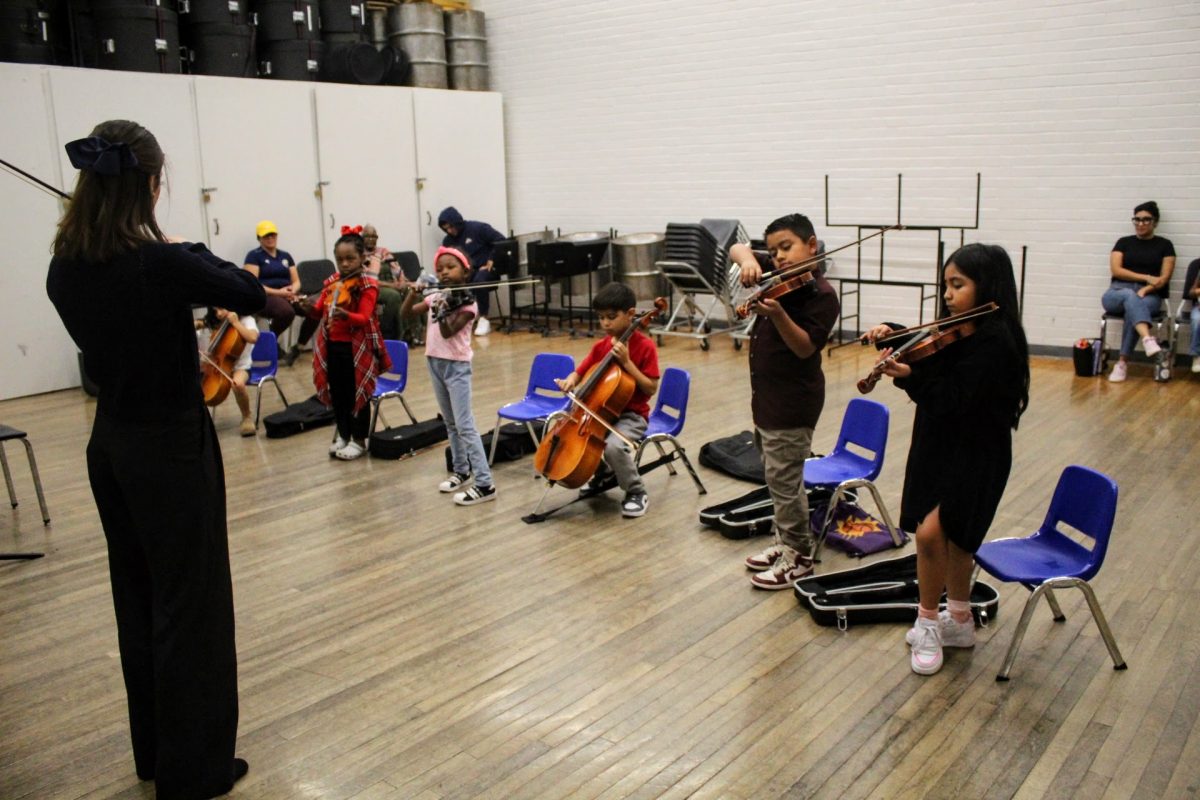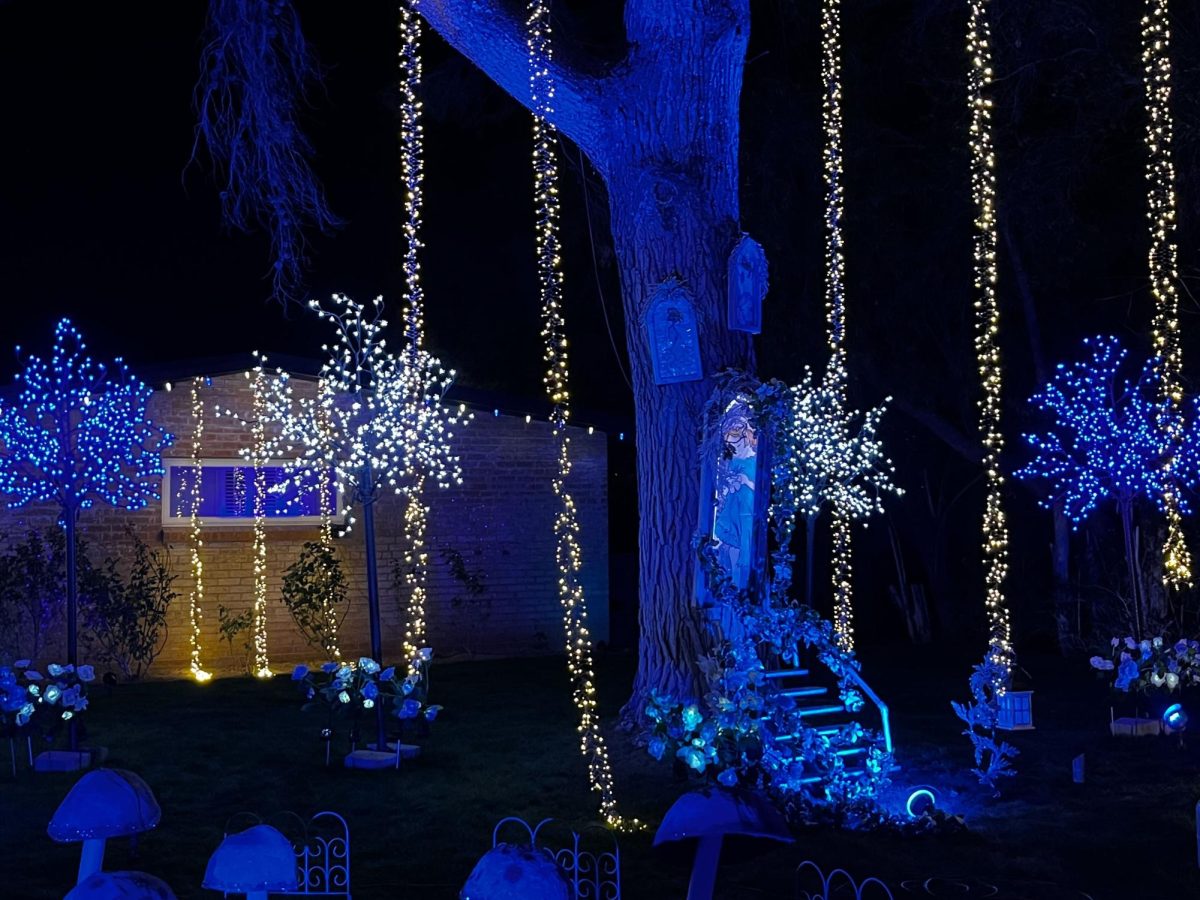March 4 Justice Tucson’s Juneteenth: Institutionalized was held at MSA Annex Friday, June 19, and highlighted education, art and performance while celebrating Juneteenth, the 155-year-old unofficial holiday.
Tiana McDaniel, one of the four March 4 Justice Tucson organizers, described the organization and its mission.
“March 4 Justice is an organization run by four black women all under 21 with the intention of creating a healing, peaceful place for black communities and black culture while also fighting for justice,” McDaniel said.
According to McDaniel, the second part of the event’s title — Institutionalized — started as a concept from a song.
“We were inspired by a Kendrick Lamar song called “Institutionalized”,” McDaniel said. “Basically, we wanted to focus [the event] on the fact that slavery is not anywhere near done; systemic racism is still very alive and very real. That’s kind of where we got the institutionalized theme because it starts from the institutions and it trickles down all the way to everyday racism.”
RELATED: Exploring Title IX and campus sexual assault through film
Juneteenth itself was based on the two-and-a-half year delay of important information to one of the last groups of slaves in 1865 — that they had been emancipated by law. The celebration of Juneteenth marks the date of this delayed emancipation, June 19.
Many like Yasmine Grant, an artist at the event, were not taught about Juneteenth in school. According to Grant, she was taught about it through social media.
“I was 14 maybe and I had seen an Instagram post and I was like I have no idea what this is,” Grant said. “I was actually really shocked and then after that I did more research and I started finding out more and more, even today I’m still learning more and more about it.”
Nick Arcade, owner of Black Broccoli on 418 E. Seventh St., also did not learn about Black culture and Juneteenth in school.
“I personally think it’s important that we know the history of our country and our culture. I think a lot of times it wasn’t something that was taught to me in school,” Arcade said. “A lot of the information that I learned about my culture, I learned outside of school.”
One speaker at the event knew about Juneteenth previously after taking an Africana Studies class at the University of Arizona, but celebrated it openly for the first time.
“Let me be honest with everybody here tonight,” the speaker told the audience. “This is my first time celebrating Juneteenth. It was not that I didn’t know about it, but they made it seem like it was just another day for Black folks like how they try to whitewash Black History Month as just another [month] that goes by.”
This lack of discussion may be due to flaws in the educational system according to Sadie Shaw, who graduated from the UA in 2019. After personal experience with the local education systems as a parent and through volunteering and observing at local high schools and middle schools, Shaw is now aiming to get on the Tucson Unified School District Governing Board.
“A big thing in the district is the ethnic studies program. Mexican American Studies was defended and then kind of brought back,” Shaw said. “It’s elective programs so you have to want to learn that to learn that. I want to expand the ethnic studies program to make it something that is required, not just for Mexican American studies, but African Studies and not just African American. I want us to learn about Africans before slavery. I’m sick of hearing the same Martin Luther King Jr., Rosa Parks stories that we’ve heard since elementary school.”
RELATED: Dr. Christian Bime: Fighting the pandemic one patient at a time
Interspersed between performances and speeches, organizers from Juneteenth: Institutionalized discussed important moments in Black history. In addition, a representative from Arizona Heritage Tours spoke on the extensive history of Black people in Arizona.
In addition to education and history, Juneteenth: Institutionalized emphasized the work of Black creatives and businesses.
According to Grant, part of the reason she was interested in participating in Juneteenth: Institutionalized was to connect with the local Black creative community.
“I think the main reason is we don’t have a lot of black creatives,” Grant said. “I definitely want to come out here not just for myself just to show my art but to meet other people in the community so I actually met a lot of people in the community and I’m planning to collaborate with them on a lot of future things so I think it was just a perfect thing to come do.”
A singer at the event echoed Grant’s sentiment.
“Unity is the closest thing we have to a superpower.”
Follow Ella McCarville on Twitter















